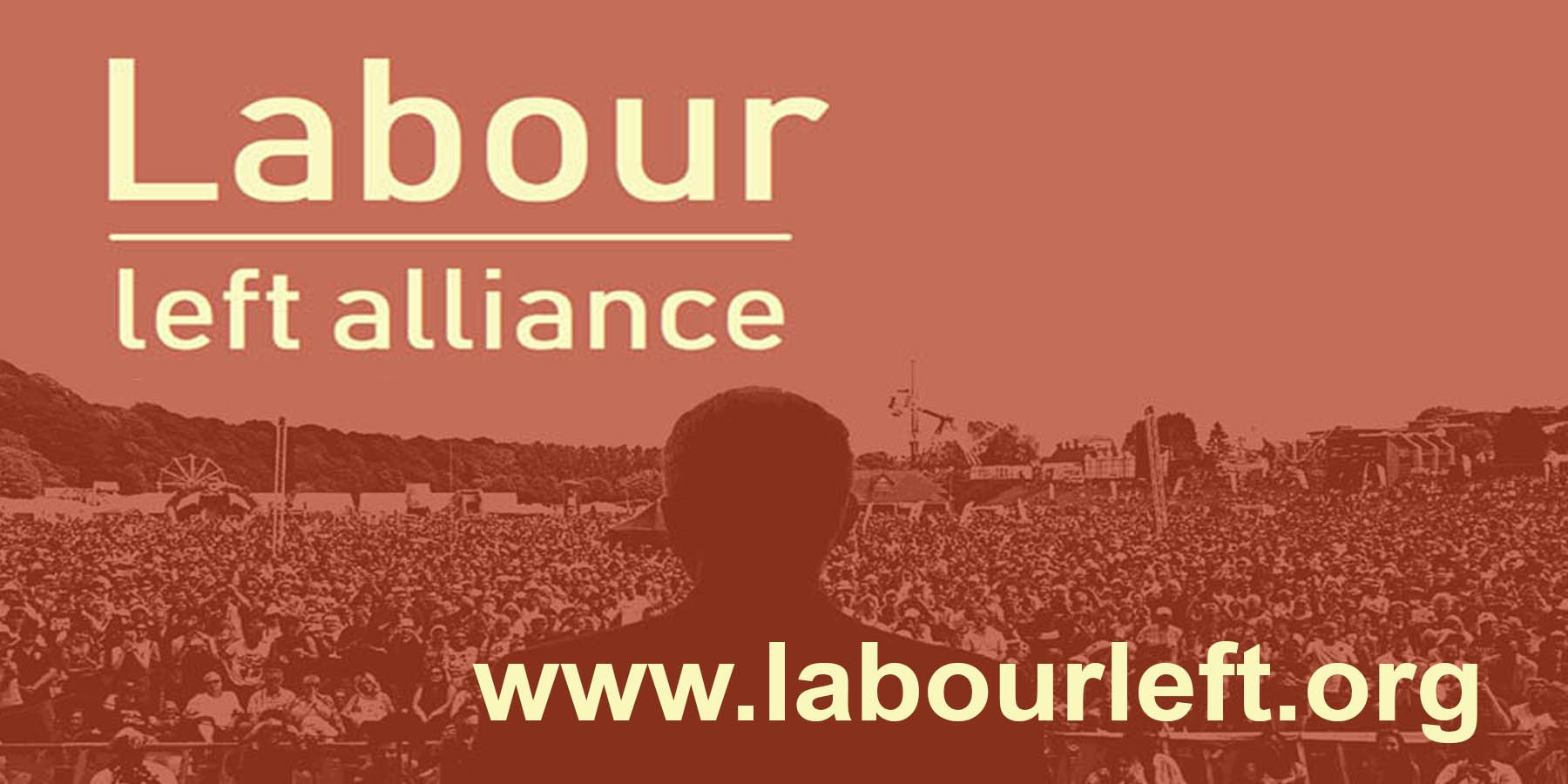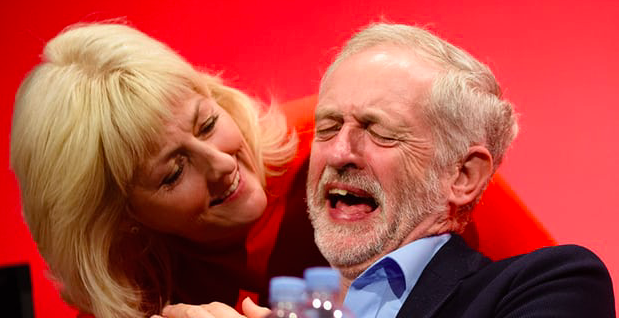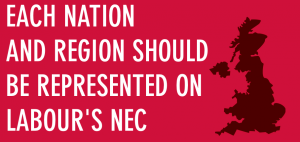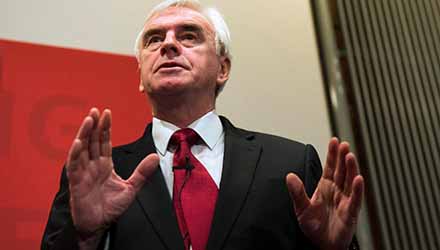The right has given us a gift and we have used it. Charles Gradnitzer of Labour Party Marxists recalls how it all came about.
This article attempts to explain the previous left challenges to the leadership position and why they failed; the old electoral system and the manufactured scandal that changed it; the current state of the Labour left; and the opportunities a Corbyn victory presents to the left and the grassroots membership of the Labour Party.
As most people are aware, Tony Blair won the leadership election in 1994. He was standing against John Prescott and self-professed “moron” Margaret Beckett, so it is safe to say that there was no left candidate. In 2006, anticipating that Blair would be stepping down the following year, John McDonnell announced that he intended to stand as the leftwing candidate in order to ensure there would be a debate within the party and not simply a ‘coronation’ of Gordon Brown as Blair’s successor.
In 2007, a few months before Blair set a formal date for his resignation, Michael Meacher announced his intention to stand. Meacher had been in the Socialist Campaign Group with McDonnell until 1983, when he was expelled after he joined the shadow cabinet. He was a minister for 20 years (and even voted for the invasion of Iraq) until he fell out with Blair and returned to the backbenches in 2003. After this he began to move back to the left and attack Blair over Iraq.
So in 2007 we arrived at a situation where the left was fielding two candidates in a leadership election – presumably to make up for the failure to stand anyone at all in 1994. But with two days to go before the close of nominations Meacher stepped down and asked his supporters to back John McDonnell, who was relying on nominations from Meacher’s supporters and those of the centre-left deputy leadership candidate, Jon Cruddas. However, much of Meacher’s support came from MPs who did not see McDonnell, a rebellious backbencher, as a credible candidate and the Brownites subsequently pressured 14 of Meacher’s supporters not to nominate McDonnell. Cruddas supporters also failed to back him and in the end he fell 16 nominations short of the 45-MP threshold. This meant that Gordon Brown, with a total of 313 nominations, was elected unopposed and the leadership conference was reduced to the coronation McDonnell had predicted in 2006.
When Brown resigned as both prime minister and leader of the Labour Party after the 2010 general election, which resulted in a hung parliament, the Miliband brothers and Ed Balls declared their intention to stand, while comrade McDonnell also announced that he would stand again. But once again there was a second left candidate – Diane Abbott, a fellow member of the Socialist Campaign Group – and this time McDonnell dropped out, asking his supporters to back Abbott. However, she went out in the first round, having received the lowest vote of any candidate from the parliamentary and constituency sections of the electoral college (though she did head Andy Burnham and Ed Balls in the union and affiliate section). So it was ‘Red Ed’ who won the leadership election in 2010, narrowly beating his brother, David Miliband, thanks to the “pernicious influence” of the trade unions – a truly bizarre claim, given that the vote of a union member was worth 0.13% of that of an MP.
Experiment
What was interesting about the 2010 election was a little noticed experiment conducted by John Mann in his Bassetlaw constituency, the outcome of which would go on to drastically alter the course of Labour Party history.
Mann, convinced that there was a need to “widen democracy” and open up the leadership election to the public, identified Labour supporters in his constituency and conducted a ‘primary’ to determine who he should vote for in the leadership election. At a cost of several thousand pounds he worked with the Bassetlaw CLP and other volunteers to conduct a postal ballot of over 10,000 people who were said to be Labour supporters.
Writing for Progress magazine in July 2010, Andy Burnham – who was, of course, standing as a leadership candidate – praised John Mann’s primary. In his article he stated that membership fees were a barrier to participation, that he wanted to create an affiliate membership (ie, ‘registered supporters’), and that as leader of the Labour Party he would look to include registered supporters in future internal elections and selections. (To Burnham’s dismay Labour supporters in Bassetlaw voted for David Miliband in the primary and John Mann cast his ballot accordingly.)
Stephen Twigg, the chair of the rightwing Progress group from 2005 to 2010 and its current honorary president, wrote a contribution to The purple book, published by Progress in 2011. In his chapter, entitled ‘Letting the people decide: redistributing power and renewing democracy’, he stated:
“In 2005 only 1.3% of the electorate was a member of a political party, afallfrom4%in1983…The fall in membership has resulted in fewer people being involved in selecting Labour’s MPs. The average constituency Labour Party has around 300 members. This equates to a very small percentage of the local population. When candidates were selected by large memberships 50 years ago, it was easier to see how they reflected the wishes of the local population.
“How, then, could Labour seek to increase the influence of ordinary people over the decision of who represents them? One way would be to introduce closed primaries …”
He went on to advocate ending the automatic affiliation of union members in favour of an opt-in system; and abolishing the electoral college in favour of ‘one member, one vote’ (Omov) – “opening up access to the Labour Party and how it operates should be an important organisational goal”, he said.
When Ed Miliband became leader in 2010, he immediately set about reviewing the party structure – as Blair had done in 1997 – through a bogus “consultation” known as Refounding Labour. Party units and individual members were asked to make submissions to this review, but when the recommendations were published it was clear that the party had, at best, cherry-picked submissions – in all likelihood the recommendations were a foregone conclusion and the submissions were mostly ignored.
The end result of this review was the introduction of ‘registered supporters’. These did not have to pay a fee, but were largely election fodder. They were not involved in internal party selections – if they were involved in the party at all.
The Labour left saw straight through Refounding Labour: it was a step towards achieving the rule changes Progress wanted to make. Writing in Left Futures, Jon Lansman predicted that registered supporters “could be given votes in leadership elections as if they were affiliated members”.1 This prediction was not entirely hard to make, given that Progress had been pushing for primaries, using Mann’s Bassetlaw experiment as a case study on widening political engagement with the party.
Falkirk and Collins
With Progress gunning for opt-in affiliation and Omov to reduce the “power of the unions” in the Labour Party, the executive committee of the Unite union adopted a new political strategy in 2011 to “reclaim Labour”. The strategy consisted of three major goals: maintaining the union link; increasing the number of trade union or “trade union-friendly” prospective parliamentary candidates; and increasing the number of trade unionists in constituency Labour Parties in order to secure the success of the first two goals.
Though Progress had failed to get primaries, opt-in affiliation and Omov into the Refounding Labour recommendations, its opportunity finally arrived in 2013, when Unite’s political strategy blew up in its face. In July that year, Eric Joyce, the disgraced former Labour MP for Falkirk, accused Unite of rigging the selection process.
The Unite convenor at Grangemouth oil refinery, Stephen Deans, had become the chair of Falkirk West CLP shortly after Joyce had resigned after nutting a Tory MP in the House of Commons bar. Deans began to implement Unite’s political strategy in Falkirk, recruiting union members from Grangemouth into the CLP. While Deans was chair the size of the CLP doubled from fewer than 100 members to over 200.
Falkirk West had agreed to have an all- women shortlist, which would exclude the Progress candidate, Gregor Poynton. However, when it was discovered that the trade union-friendly Katie Myler was Unite’s preferred candidate, Progress went apeshit, with Peter Mandelson warning Miliband at the 2013 Progress conference that the unions were trying to “take over” the party.
In March 2013 the Labour NEC created a subcommittee to investigate claims that Unite had signed up and paid for members without their knowledge and the report was published in June that year. As a result both Katie Myler and Stephen Deans were suspended from the party and Falkirk was placed under “special measures”. The report was handed to the police in the hope that Unite would be charged with fraud, but Police Scotland concluded that “there are insufficient grounds to support a criminal investigation at this time”.
In one of the most infuriating examples of the pot calling the kettle black, the report revealed that the Blairite candidate backed by Progress, Gregor Poynton, had paid party subscriptions for 11 new members, which was actually against the party rules, whereas the report exonerated Unite of any wrongdoing.
In spite of the report and the police investigation, former Labour Party general secretary Ray Collins was asked to head a review to make recommendations for party reform. Collins, who had been assistant general secretary of the Transport and General Workers Union until 2008, recommended most of the policies Progress had tried to push through in 2011: the abolition of the electoral college, the introduction of Omov, mandatory opt-in affiliation of union members, new rights for registered supporters, including the right to vote in the leadership election. In order to appease the Parliamentary Labour Party, Collins recommending raising the threshold for leadership nominations from 12.5% to 15% of Labour MPs.
The Collins review was put to a special conference, to which I was delegated in 2014. The Labour left vociferously opposed the recommendations, while they were supported by the centre and the right. In the run-up to conference delegates received numerous letters from Ed Miliband urging them to vote for the reforms. One such letter told the story of Paul, a lifelong trade unionist and figment of Miliband’s imagination, who finally joined the Labour Party after the reforms were announced – on the basis that “until now the party never felt democratic. It never felt like one I could join.”
The event itself was a stage-managed stitch-up. The first sign of this was that it turned out there had been no conference arrangements committee and therefore no CAC report. A number of CLPs had submitted emergency motions which were not on the agenda and, when this was pointed out to conference, Angela Eagle assured delegates from the chair that the CAC had met in January. But if it met in January it would not have been able to consider submitted motions or actually do any arranging, because the Collins review was not published till February.
The conference went on as planned. General secretary after general secretary stood up to denounce the reforms, but in the end it was all hot air. When it came to the vote, 96% of the unions (with the honourable exception of the Bakers Union) and 74% of the CLPs voted for the reforms, giving a total of 86.29% in favour and 13.71% against. The experiment conducted by John Mann in 2010 had borne fruit.
Labour left
In 2015 the Labour Party suffered a crushing defeat under Ed Miliband. In Scotland the party was all but wiped out. This defeat had major ramifications for the political composition of the PLP. Seven sitting Campaign Group and Left Platform MPs were wiped out by the Scottish National Party, and five Campaign Group MPs stood down and were replaced by candidates that are not leftwing.
The 11 left ex-MPs would have been enough to put Corbyn on the ballot without any nominations from MPs who later regretted it. In addition to this 18 Left Platform PPCs were stood in Conservative strongholds, continuing a tradition of parachuting centrist and right wing candidates into Labour strongholds while sticking socialists in unwinnable seats.
One of the most striking things about the Corbyn campaign has been that it reveals how badly the parliamentary party reflects the views and wishes of the membership and the unions. This is the result of NEC interference in constituency selections and the fact that the Labour right has been well organised for years. There is very little organisation of the ‘hard left’ or even ‘soft left’. There is no leftwing membership organisation that regularly meets, holds press conferences, tries to win important internal and parliamentary selections, and produces economic policy documents. In short the left has nothing analogous to Progress. A leftwing proto- Progress exists in the sense that the left does some of these activities, but it is not organised into one organisation.
Luke Akehurst, the secretary of Labour First, produced an interesting article on what he calls the “hard left” for his blog. The situation he describes is basically right: the ephemeral left organises through “networks” of Facebook groups, email lists, phone calls, and meetings of various established groups. However, his claim that these “networks” are an “experienced and highly motivated machine” is grossly exaggerated.
The Labour Representation Committee, set up in 2004, is not capable of organising anything on the scale that is needed. It has its conferences and some of its comrades sell Labour Briefing at meetings, but beyond that it does not really do a great deal. It is haemorrhaging members and looks like it is on the verge of collapse.
Andrew Fisher, who was joint secretary of the LRC with Pete Firmin, started the Left Economics Advisory Panel, which, as the name suggests, produces ‘leftwing’ (ie, neo-Keynesian) economic policy documents and press releases. Fisher has also written a book called Austerity: the failed experiment.
The Campaign for Labour Party Democracy tends to concentrate on internal party matters: electing people to the conference arrangements committee, the NEC, the national policy forum; submitting soft-left contemporary motions to conference and rule changes aimed at making the Labour Party more democratic and accountable to the membership.
A group not mentioned by Luke Akehurst is Socialist Action. Few people know who is in SA because when it split from the International Marxist Group it began to pursue a ‘deep entryist’ strategy. It is so secretive I would wager there will be members of Socialist Action who do not know each other. It does not organise openly. You can sometimes guess who is in it – if they once worked as advisors for Ken Livingstone when he was London mayor, for example, or today they talk about deficit reduction through investment rather than public-sector cuts.
Membership of these groups tend to overlap and they mostly stand for various positions under the banner of the Centre-Left Grassroots Alliance. A fact that did not go unnoticed by Akehurst, who points out how undemocratic this arrangement is. He notes that the name is ironic, given that one of the main groups in the CLGA is the Campaign for Labour Party Democracy. The CLGA also has a website that carries reports from the CLPD about NEC and NPF meetings, conference, and other Labour Party internal affairs.
The Centre for Labour and Social Studies is also worth mentioning because when it was launched it was described in The Guardian as a “leftwing antidote to Blairite pressure group Progress”. Owen Jones describes it in similar, though less hostile terms, as the left’s answer to Progress. Considering it has Sally Hunt from the University and College Union and Sir Paul Kenny on its national advisory panel, I would question whether this think-tank could really be considered leftwing. The advisory panel also includes the former leader of Respect, Salma Yaqoob, so it is not really even part of the Labour Party.
In addition to this there is the Socialist Campaign Group of MPs of which Corbyn is a member. It was set up in 1982 as a split from the Tribune group after Kinnock and other members of Tribune abstained in the deputy leadership election in 1981, costing Tony Benn the job. Amusingly, Corbyn’s refrain that his candidacy is “not about personalities, but about policies” is exactly what Benn said in 1981 when he stood against Denis Healey for deputy leader.
Two other ‘groups’ worth mentioning are the Left Platform, which was actually the name used for a statement put out before the general election, signed by sitting Labour MPs and PPCs. The second consists of the 10 newly elected Labour MPs who, after winning the election, wrote an open letter committing themselves to anti-austerity politics. Among the list of signatories are Corbyn supporters such as Richard Burgon, Clive Lewis and Kate Osamor.
Nomination
The Left Platform is worth mentioning because its post-election meeting put the dire state of the Labour left into perspective. On May 12, it met in London to discuss the prospects of standing an anti-austerity candidate. John McDonnell, having failed to get enough nominations in the last two leadership elections, immediately ruled himself out. Comrade McDonnell and other MPs thought that they could get at most 16 nominations, due to the 2015 wipe-out of the Campaign Group and the lack of new socialist MPs.
At first there was a campaign to get Jon Trickett to stand. There was even a change.org petition to put pressure on him, but once it became obvious he was not going to put his name forward, the left started searching for an alternative. Some wanted Michael Meacher to stand as the anti-austerity candidate, given that he was one of the initiators of the Left Platform, but he had already indicated that he was going to back Andy Burnham. It was then that comrade Corbyn took up the mantle.
The best anybody on the Labour left was hoping for at that point was that Corbyn would get enough airtime to put forward an anti-austerity position before the nominations closed, but after his Facebook page exploded a campaign was mounted to secure him enough nominations to get on the ballot paper. The campaign argued that the inclusion of Corbyn would widen the debate and enfranchise thousands of members who would otherwise not engage with the leadership election. Elements of the centre and the right – including Luke Akehurst – supported his inclusion on the ballot in the hopes that Corbyn would be humiliated during the leadership debate and the “hard left” would be crushed and demoralised.
Tens of thousands of Labour members and supporters bombarded MPs via email and social media in order to get him on the ballot. It was clear from some of the responses that this pressure from the grassroots accounted for at least some of the support. Other MPs clearly nominated Corbyn in order to shield Burnham from claims that he was too leftwing and in the pocket of the unions.
The morning that the nominations closed it did not look as though he was going to make it onto the ballot – in spite of the optimistic editorial in the Morning Star and assurances from his campaign team that they had enough support from MPs. But that morning there was a last- minute surge of nominations and as the clock struck 12 he had made it onto the ballot.
The first sign that Corbyn was reaching out to people beyond the notoriously insular world of online leftism was at the Newsnight Labour Party leadership hustings on June 17. During the hustings Corbyn had the most audible support, even though he did not capitulate, as the other candidates did, to one particular chauvinist in the audience.
In July YouGov dropped a polling bombshell: Corbyn would win in the final round with 53%. At first this poll was dismissed, but to the terror of the centre and the right such findings kept on coming in. Poll after poll was putting Corbyn in first place. In addition to this the supporting nominations from unions and constituency parties were also rolling in. In the end Corbyn had the support of 36 MPs, two MEPs, six major trade unions, 152 constituencies, and two affiliated socialist societies, putting him ahead of the other three candidates.
The campaign has exceeded the wildest expectations of many comrades. He has been speaking to packed-out meetings across the country and the party has doubled in size. 160,000 people registered as members, affiliates, or supporters in the last 24 hours before the registration closed.
Opportunities
There are, as I see it, two opportunities here for the left: the first is democratic reform of the Labour Party to undo the damage Tony Blair did. The second is a serious regroupment of the left within the party.
To grasp the first opportunity, we must first understand what is undemocratic about the Labour Party. In 1997 the annual conference adopted Tony Blair’s changes to the way the party programme and manifesto were developed. This was known as Partnership into Power and it remains in place to this day. The changes introduced six policy commissions, the NPF and the joint policy committee, and used these new bodies, along with ‘contemporary resolutions’, to reduce the role of conference in determining the party programme.
The policy commissions – which comprise 16-20 members representing the government, the NEC and the NPF – produce policy documents for the national policy forum and the joint policy committee (JPC) to discuss. The JPC acts as a steering group for the NPF, and is made up of representatives from the cabinet, the NEC and the NPF itself. It determines what policy the NPF will debate and when. The NPF is made up of 194 representatives from all sections of the party – CLP members and trade union delegates have the greatest representation, but it also includes the entire NEC.
Each year the NPF produces a report and presents it to the annual conference. Conference votes on the document as a whole, which is several hundred pages long. Each report represents one of three stages of the policy development process: stage one is a single document that considers the “big challenges” of the day; stage two outlines specific policies to tackle them; stage three produces the draft ‘final year policy’ document. Once the draft FYP document is passed by conference, the party is then asked to submit amendments to it. These are taken to the final NPF, where they are debated, and the final version is agreed by consensus. This document is taken to the annual conference, and once it is rubber- stamped it becomes the party programme.
At the annual conference the unions and constituency parties are able to submit contemporary resolutions, which can only address matters that the NPF could not discuss in its reports, so they have to pertain to events that have occurred in the three months between the last NPF meeting and the conference (hence the name ‘contemporary resolution’). They are only added to the programme if they receive two-thirds majority support.
Once this bureaucratic process is complete, a ‘Clause V’ meeting is held, where various delegates from the cabinet, the unions, the backbenches, the NEC and the NPF select which bits of the programme will go into the party manifesto. It is widely know that much of the FYP documents and almost all of the contemporary resolutions are left out or, if they are included, they are often reworded. This has yet to be quantified, but the CLPD has commissioned a report in order to identify all the differences between the party programme and last year’s manifesto.
This process was supposed to widen participation in drafting the manifesto, but in reality it has shut members out of that process even more. Most delegates to conference do not know what is going on, and this lack of knowledge is compounded by the fact that the speeches in favour of the FYP document usually do not correspond to the contents of the document. And, even if delegates do understand what is happening, I would wager that only a tiny minority have actually read the FYP document. In the unlikely case that they have and they disagree with it, the only option they have is to vote for or against it: it cannot be amended or taken in parts at annual conference.
Neither is the national policy forum itself transparent or accountable. Nobody knows what goes on at the NPF: it is not live-streamed or minuted, and delegates do not give report-backs, so you cannot know how your delegates have voted. You do not know which amendments were even considered or on what basis they were accepted or rejected; nor do you know who voted for or against them. Even if you did, the Clause V meeting which determines the manifesto renders the entire exercise of creating a party programme redundant – the participants are appointed, not delegated, and the meeting is not exactly transparent.
This entire process has to be changed and Corbyn must commit himself to doing this. As previous leaders have done, he could organise a review – similar to Partnership into Power or Refounding Labour, only less reactionary – in order to simplify the process, as well as making it democratic and transparent. I am not sure that going back to cobbling together often contradictory policy from party conferences at a Clause V meeting is the best approach, but a simplified, accountable, transparent, representative body – with recallable delegates – that is responsible for drafting the party programme and manifesto would be a good start; the role of the party conference should be to debate, amend, insert and delete sections of the party programme and manifesto.
There is a whole raft of other measures that I would like to see: the abolition of trigger ballots, the ability of constituency parties to recall sitting MPs and councillors, the end of NEC interference in parliamentary selections, a serious campaign to get all trade unions and other socialist groups to affiliate to the party, and an end to bans and proscriptions of socialist groups.
The second opportunity is a serious regroupment of the left. Hundreds of thousands of people have flooded into the party since the general election. As many as two thirds of these people have joined in order to support Jeremy Corbyn. Currently a small proportion are meeting at phone banks in order to canvass for him. They are also gathering at meetings of local Red Labour groups, which were recently established and largely existed on social media until they branched out into the real world.
It would be an absolute disaster if the left failed to turn the waves of Corbyn supporters flooding into the party from an amorphous mass into something more concrete.
Notes
1. www.leftfutures.org/2011/07/refounding-la- bour-attacks-union-influence-and-will-disap- point-members.
2. The Guardian August 16 2012.


 Labour First and Progress have just announced the
Labour First and Progress have just announced the 




